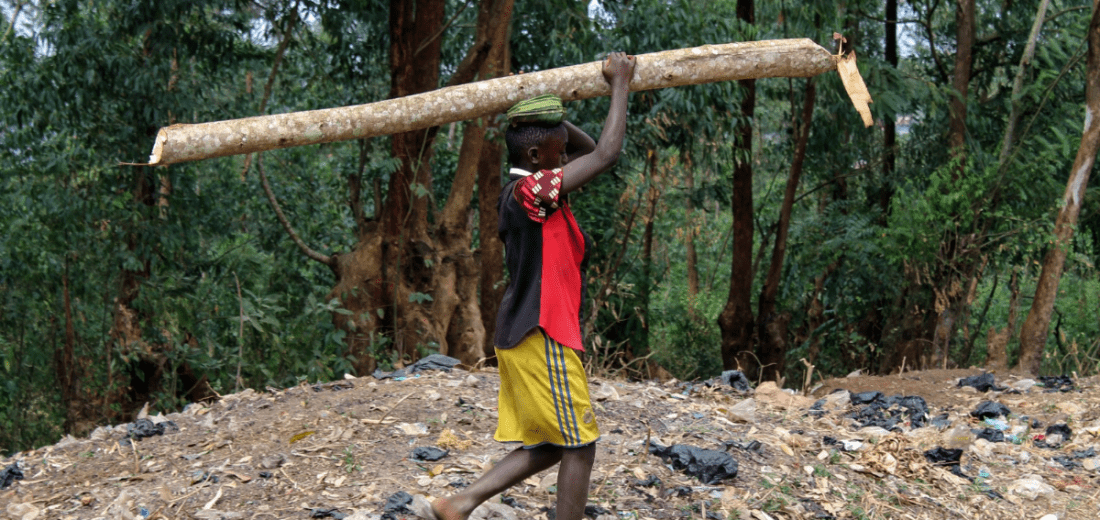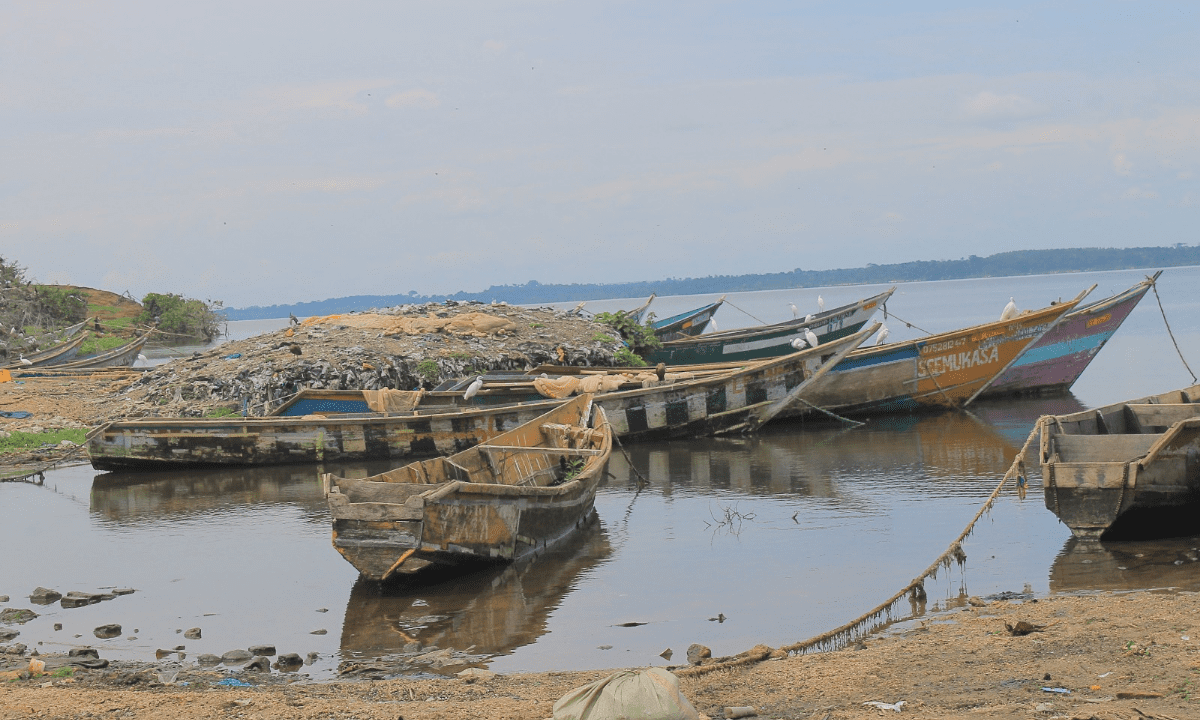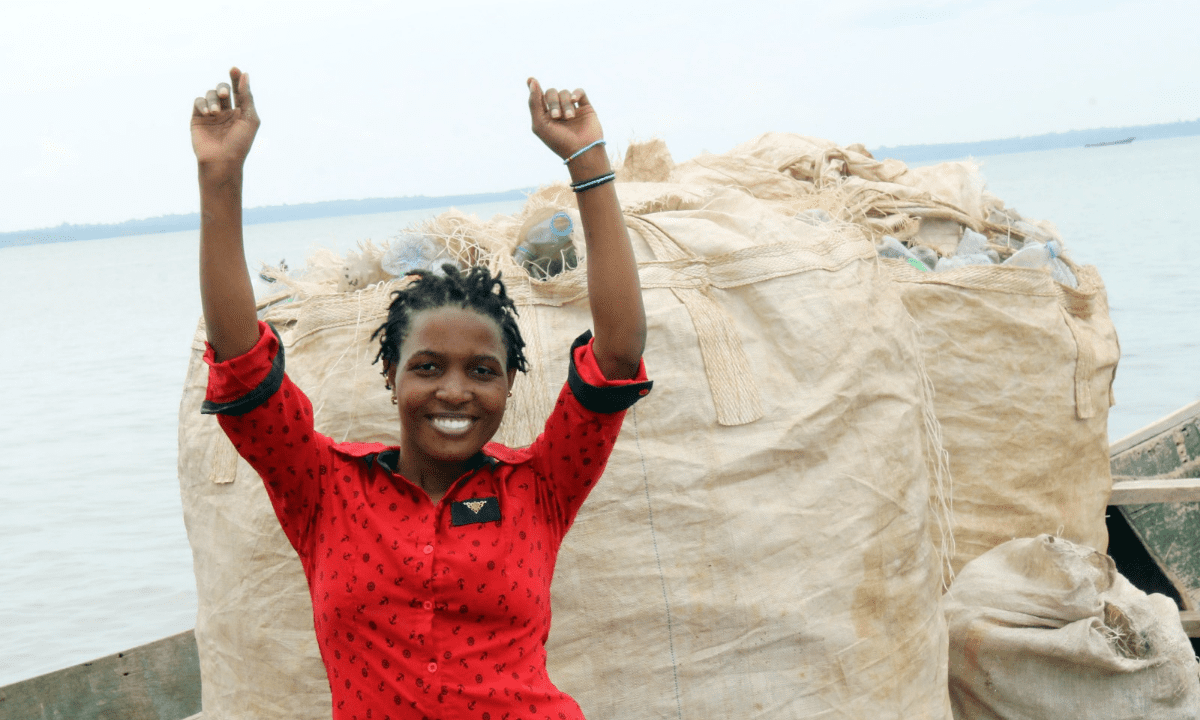
Climate Yes! The roadmap to climate justice
Christian youth from around the globe have proclaimed in one voice that the time to act is now regarding climate change. Having been sidelined from key decision platforms, they formed an ecumenical campaign that seeks to hold politicians to account while calling for climate justice.
Climate change has had adverse effects on the socio-economic aspect of Africa. From the drought in the Horn of Africa, and water-related calamities in Zimbabwe and Tanzania, to the landslides in Uganda and the extreme weather patterns being experienced across the continent. This has resulted in the loss of lives and livelihoods, as well as damage to crops and properties. The ripple effects have affected social relations, leading to increased hostility and conflict even in homes, resulting in cases of GBV. Environmental racism has led developed countries into creating conditions for grants meant for climate action, stifling much-needed interventions in Africa.

Youth have been on the sidelines for far too long despite having sustainable ideas on climate action and justice. Climate Yes is the fruit of COP-26 in Glasgow. The youth saw the need to be on the frontlines to salvage the situation and solve this problem for the benefit of the next generation. It is an interfaith initiative that is anchored on the sacredness of creation and the mandate and order that emanates from it. Climate Yes, Nairobi Hub was instrumental in mobilizing youths to create a network of like-minded people who share the vision and passion of making the world a better place through climate justice.
For far too long, climate action has been regarded as charity work, with no clear long or short-term goals to be met. African countries have adopted certain practices aimed at mitigating climate change, like tree planting exercises. Though great initiatives, they are not sufficient. As the youth, there is a need to come up with concrete strategies for dealing with the adverse effects of climate change. For instance, should they be long-term, short-term, or just symbolic? What are the measurements of success and impact? What are the indicators? What threshold do we hope to achieve with Climate Yes?
Plan of action
Africa suffers due to a lack of systems and mechanisms that are related to climate change, biodiversity, and ecosystems. So as we delve into climate financing, we should also create markets for the ecosystem, the prerequisite structural operating procedures, and well-drafted designs. These will aid in the accountable implementation of climate justice interventions that are sustainable and which will benefit society as a whole. The existing mechanisms have failed in their accountability aspect, leading to climate fraud and injustice. Climate Yes is aimed at streamlining these injustices by strengthening the capacity of the youth and providing them with a platform to design, develop and implement climate justice interventions at their various grassroots levels.
It has conditioned the youth to not accept the bare minimum when it comes to climate justice. It is beyond the broad terms of mitigation, adaptation, advocacy, and resilience. Creating awareness is more than just making people know about climate change, its impact, causal factors, and adverse effects on the economy. Rather, it is geared toward making it known, understanding, and putting it into practicability. It is our duty as climate justice delegates, champions, advocates, and stakeholders to uphold the integrity of the work we are doing, and ensure we meet the objectives we have set out for ourselves. We have to practice what we teach, lead by example, and uphold the teachings of faith in our climate works.

We are hummingbirds in a contemporary world. The little actions that we have been, are, and will be working on, will pave way for the greater good. The time to act is now. Speak up and call the stakeholders into action for their role in being the mitigators of climate change. It is beyond the umbrellas that we have shielded ourselves under. We have to take the mantle of climate justice into our hearts, through our resources, time, and energy; not to achieve perfection, but to bring change to society.
We should retrace our steps back to creation and reclaim the mandate of taking care of our environment. Colonialism, Christianity, Intersectionality, and activism are key aspects of climate justice. It is bigger than the major conferences, summits, and events that we hold at the UNFCCC, the Paris Agreement on Climate Change, and COP-26 or 27 amongst others, on climate justice.
Resolve needed
This is the Road Map to COP-27. What are the pressing and emerging issues, and the go-to way in regards to climate justice? How do we hold countries accountable for their contributions to climate change? How do we make governments and states capable of bargaining on equal terms in sourcing for grants and other collaborations? Such questions have all concluded that individuals can make a difference. However, it lies in their motivation and principles in achieving this difference concerning climate justice.
The fact is Africa contributes less than three percent of carbon emissions, yet it suffers the most adverse effects. Her biodiversity has suffered huge losses, bringing out the negative impacts that Africans have to contend with. Poverty has been a major factor as it spurs the destruction of forests as individuals look for sources of income and other products. The issue of the stakeholders has been overlooked in their contributions to climate change. Companies have contributed to the loss of trees/forestry, through their exploration of fossil fuels and mining. NGOs, with their heartfelt interventions, never achieve their intended objectives and only end up exploiting society while the Government lacks political goodwill and is led by greedy and selfish individuals who only pursue their interests.
We are the Humming Birds in the contemporary world, the little actions we take have a greater capacity to heal and nourish the beauty of nature for a greater good. Our wings may be broken but that won’t stop us from flying for the betterment of mother earth.

Leave a Reply